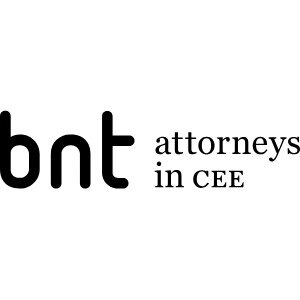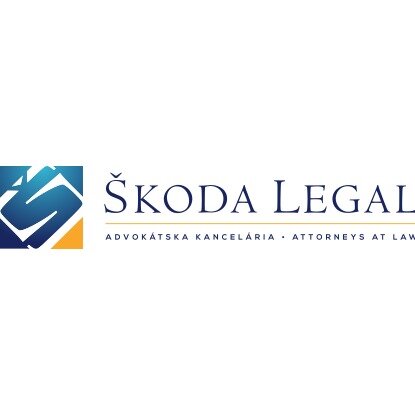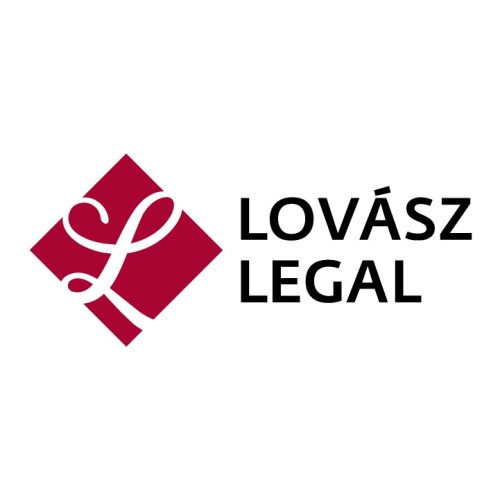Best ESG Advisory & Compliance Lawyers in Bratislava
Share your needs with us, get contacted by law firms.
Free. Takes 2 min.
List of the best lawyers in Bratislava, Slovakia
About ESG Advisory & Compliance Law in Bratislava, Slovakia
Environmental, social, and governance (ESG) advisory and compliance has become increasingly relevant for businesses operating in Bratislava, Slovakia. ESG refers to strategies and standards businesses adopt to operate responsibly, addressing their environmental impact, promoting social responsibility, and ensuring good governance. In Bratislava, this area of law helps companies align their operations with both national and evolving European Union (EU) regulations. Compliance is not only about minimizing risk but also about improving corporate reputation, attracting investment, and fulfilling legal obligations. Legal professionals in this field offer guidance on achieving ESG objectives, reporting requirements, and mitigating compliance risks.
Why You May Need a Lawyer
Seeking legal advice in ESG advisory and compliance is essential for several reasons. Companies may need guidance on how to design and implement ESG frameworks, interpret new regulatory obligations, or prepare for due diligence by investors or business partners. Legal issues may also arise when integrating ESG into supply chains, managing environmental impacts of operations, or responding to non-compliance and regulatory investigations. A lawyer can help navigate complex Slovak and EU legal landscapes, draft ESG policies, review contracts for compliance, provide training to staff, and represent clients before authorities. Whether you are establishing a new business, responding to updated legislation, or preparing ESG reports, having a legal expert ensures you avoid fines, penalties, and reputational damage.
Local Laws Overview
In Bratislava, ESG advisory and compliance is shaped by both Slovak national laws and EU regulations. Key laws include the Slovak Act on Environmental Protection, which mandates environmental impact assessments and pollution controls for businesses. Social responsibilities are embedded in employment and anti-discrimination laws, promoting equal opportunities and workplace transparency. Governance standards are primarily regulated through the Slovak Commercial Code and Corporate Governance Code, ensuring transparency, ethical behavior, and accountability of company management. The EU Corporate Sustainability Reporting Directive (CSRD) and the EU Taxonomy Regulation further influence ESG compliance by setting detailed ESG reporting and classification standards for larger companies operating in Slovakia. Companies should also be aware of non-financial reporting obligations for issues such as human rights, anti-corruption, and climate change.
Frequently Asked Questions
What does ESG mean for businesses in Bratislava?
ESG stands for environmental, social, and governance factors. For businesses, it means considering the impact of their operations on the environment, society, and ensuring ethical management practices. ESG is also increasingly regarded as a key factor in investment decisions and regulatory compliance.
Is ESG compliance mandatory in Slovakia?
Yes, certain aspects of ESG compliance are mandatory under Slovak and EU regulations, especially for larger companies. Requirements may include sustainability disclosures, employment practices, and environmental protections. Specific obligations depend on company size, sector, and activities.
Who regulates ESG standards in Slovakia?
Regulation is managed by multiple authorities, including the Slovak Ministry of Environment for environmental matters, the Ministry of Labour for social and employment issues, and financial regulators for reporting and governance. EU directives also play a significant role.
What are common challenges companies face with ESG compliance?
Companies often struggle with understanding rapidly changing regulations, gathering data for ESG reporting, ensuring transparency in their supply chains, and integrating ESG factors into corporate strategy. Proper legal guidance can help address these issues.
What are the penalties for non-compliance with ESG regulations?
Penalties vary based on the type of non-compliance and applicable laws. They can include administrative fines, restrictions on business operations, damage to reputation, and in severe cases, criminal liability for company officials.
How should a company start its ESG journey in Bratislava?
Begin by assessing the company’s current operations against existing regulations and best practices. Develop a comprehensive ESG policy, implement procedures to monitor performance, and establish transparent reporting mechanisms. Consulting with an ESG legal specialist is highly recommended.
Are small businesses required to comply with ESG laws?
ESG requirements are more demanding for large and listed companies, but some obligations, particularly in environmental and employment law, still apply to small businesses. Understanding which rules apply is crucial, and seeking legal advice can be beneficial.
How does ESG reporting work in Slovakia?
Companies subject to ESG disclosure rules must regularly publish reports on their environmental, social, and governance practices. These reports are often required to meet specific standards and may be reviewed by regulators or the public.
Can ESG compliance improve a company’s competitiveness?
Yes, strong ESG compliance can enhance a company’s reputation, attract investors, and open access to new markets. It also helps minimize operational risks and can lead to cost savings through improved efficiency and sustainability practices.
What is the role of legal counsel in ESG matters?
Legal counsel helps businesses interpret and implement ESG regulations, minimize compliance risks, draft internal policies, and represent clients with regulatory bodies. Lawyers also assist in audits, due diligence processes, and dispute resolution related to ESG matters.
Additional Resources
- Ministry of Environment of the Slovak Republic - for guidance on environmental regulations and impact assessments - Ministry of Labour, Social Affairs and Family of the Slovak Republic - for employment and social policy compliance - Slovak Compliance Circle - a professional association for compliance officers, providing ESG guidelines and best practices - The European Commission’s Directorate-General for Financial Stability, Financial Services and Capital Markets Union (DG FISMA) - for EU-level ESG regulations and directives - Slovak Chamber of Commerce and Industry - for workshops, events, and resources on corporate responsibility and governance
Next Steps
If you require legal assistance with ESG advisory and compliance in Bratislava, first assess your company’s current ESG practices and identify your specific needs. Gather relevant documentation such as policies, reports, and correspondence with authorities. Search for a legal professional or law firm specializing in ESG, preferably with knowledge of both Slovak and EU regulations. Prepare a clear outline of your questions or challenges to discuss during your initial consultation. By taking these steps and consulting an expert, you can ensure your company meets compliance standards, protects its reputation, and strengthens its position in the marketplace.
Lawzana helps you find the best lawyers and law firms in Bratislava through a curated and pre-screened list of qualified legal professionals. Our platform offers rankings and detailed profiles of attorneys and law firms, allowing you to compare based on practice areas, including ESG Advisory & Compliance, experience, and client feedback.
Each profile includes a description of the firm's areas of practice, client reviews, team members and partners, year of establishment, spoken languages, office locations, contact information, social media presence, and any published articles or resources. Most firms on our platform speak English and are experienced in both local and international legal matters.
Get a quote from top-rated law firms in Bratislava, Slovakia — quickly, securely, and without unnecessary hassle.
Disclaimer:
The information provided on this page is for general informational purposes only and does not constitute legal advice. While we strive to ensure the accuracy and relevance of the content, legal information may change over time, and interpretations of the law can vary. You should always consult with a qualified legal professional for advice specific to your situation.
We disclaim all liability for actions taken or not taken based on the content of this page. If you believe any information is incorrect or outdated, please contact us, and we will review and update it where appropriate.














